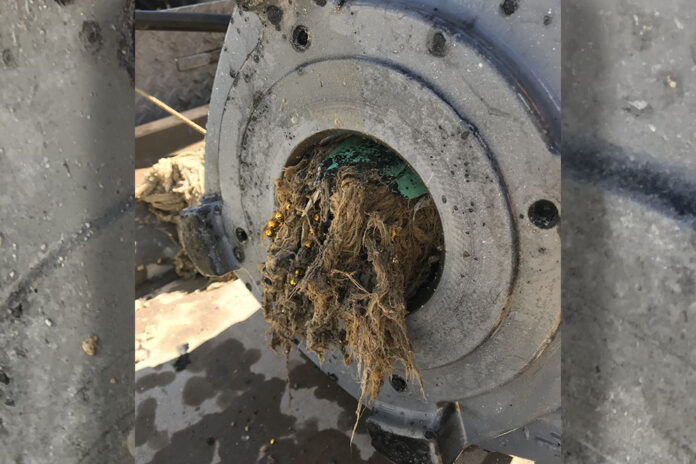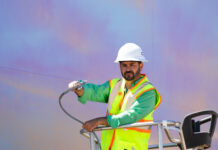
By Bob McGovern
The run on toilet paper during the coronavirus pandemic is leading to another crisis – in the sewer system.
It’s actually a heightened problem all over America as panicky shoppers have descended on the paper-goods aisles in their neighborhood supermarkets, pharmacies and big-box stores and leaving nary a sheet of the precious paper behind.
Unlucky residents finding empty shelves are apparently reaching for alternatives, including wipes, paper towels, facial tissues, and cloth towels or rags, and flushing them down the toilet.
But wipes – including the “flushable” variety as well as baby and sanitizing wipes – and other cleaning materials clog pipes and pumps and can result in sewer system back-ups.
In Maricopa, the problem pre-dates the coronavirus outbreak, but one official says the ongoing crisis will likely serve to exacerbate the situation.
“This is always an issue, not just an issue at this point in time,” said Jon Corwin, vice president and general manager of Global Water. “We haven’t had a specific issue since the onset of COVID-19, but it’s likely just a matter of time.”
Designed to be stronger than your Charmin toilet paper, wipes and cleaning cloths do not break down in water. That means as wastewater travels through the sewer system, they can collect in a mass of wastewater debris, clogging pumps in the system and possibly damaging treatment equipment. (Costly repairs, of course, are passed onto rate payers.)
“We made a capital investment in 2019 to install some equipment to help screen wipes and other debris and that is helping protect some of our pumps and other equipment, but the screen doesn’t protect everything,” Corwin said.
By the way, there’s a good chance that all those non-toilet paper products being flushed don’t even make it to the wastewater collection system, causing blockages in the pipes in your homes. That nightmare scenario includes backed-up toilets, sinks and showers, and an expensive bill from the plumber you’ll need to call to stop the madness. (The average cost of unclogging a sewer main is about $550.)
You can avoid all that with one simple rule: only toilet paper gets flushed.
Everything else – all types of wipes, paper towels, feminine products, facial tissues, cloths and rags, included – gets pitched into the trash.

![Affordable apartments planned near ‘Restaurant Row’ A blue square highlights the area of the proposed affordable housing development and "Restaurant Row" sitting south of city hall and the Maricopa Police Department. Preliminary architectural drawings were not yet available. [City of Maricopa]](https://www.inmaricopa.com/wp-content/uploads/2024/04/041724-affordable-housing-project-restaurant-row-218x150.jpg)












![Affordable apartments planned near ‘Restaurant Row’ A blue square highlights the area of the proposed affordable housing development and "Restaurant Row" sitting south of city hall and the Maricopa Police Department. Preliminary architectural drawings were not yet available. [City of Maricopa]](https://www.inmaricopa.com/wp-content/uploads/2024/04/041724-affordable-housing-project-restaurant-row-100x70.jpg)


